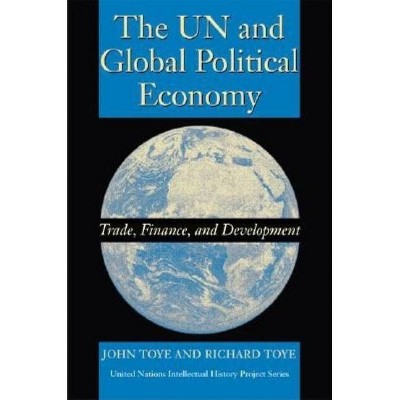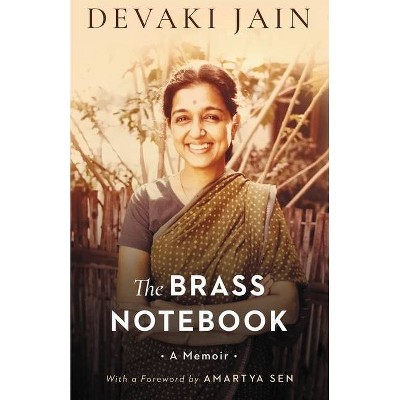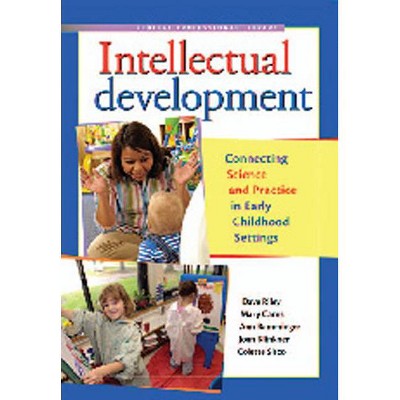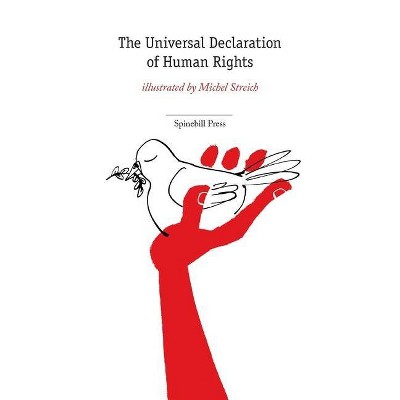Women, Development, and the Un - (United Nations Intellectual History Project (Paperback)) by Devaki Jain (Paperback)
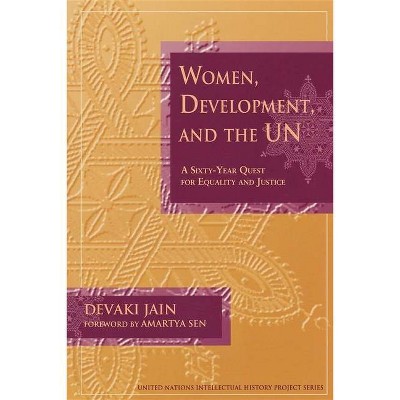
Similar Products
Products of same category from the store
AllProduct info
<p/><br></br><p><b> About the Book </b></p></br></br>The history that Jain chronicles reveals both the achievements of committed networks of women in partnership with the UN and the urgent work remaining to bring equality and justice to the world and its women.<p/><br></br><p><b> Book Synopsis </b></p></br></br><p>Devaki Jain opens the doors of the United Nations and shows how it has changed the female half of the world--and vice versa. Women, Development, and the UN is a book that every global citizen, government leader, journalist, academic, and self-respecting woman should read. --Gloria Steinem</p><p>Devaki Jain's book nurtures your optimism in this terrible war-torn decade by describing how women succeeded in empowering both themselves and the United Nations to work toward a global leadership inspired by human dignity. --Fatema Mernissi</p><p>In Women, Development, and the UN, internationally noted development economist and activist Devaki Jain traces the ways in which women have enriched the work of the United Nations from the time of its founding in 1945. Synthesizing insights from the extensive literature on women and development and from her own broad experience, Jain reviews the evolution of the UN's programs aimed at benefiting the women of developing nations and the impact of women's ideas about rights, equality, and social justice on UN thinking and practice regarding development. Jain presents this history from the perspective of the southern hemisphere, which recognizes that development issues often look different when viewed from the standpoint of countries in Africa, Asia, and Latin America. The book highlights the contributions of the four global women's conferences in Mexico City, Copenhagen, Nairobi, and Beijing in raising awareness, building confidence, spreading ideas, and creating alliances. The history that Jain chronicles reveals both the achievements of committed networks of women in partnership with the UN and the urgent work remaining to bring equality and justice to the world and its women.</p><p/><br></br><p><b> Review Quotes </b></p></br></br><br><p>-This is the 7th of a 14--volume comprehensive history of the United Nations (UN). The book begins with the UN's founding in 1945, when only 4 of the 160 signatories were women, from the Dominican Republic, Brazil, China, and the US. For gender scholars, political scientists, and academics, this is a detailed account of how women used their social capital, power, and networks to measure and highlight women's status around the world. Many familiar concepts and measures of gender inequality are traced to the UN's Commission on the Status of Women (CSW), a subcommittee established within the UN's first year. Equality, political suffrage, child marriage, widow rights, and all aspects ofwomen's visible and invisible work are a few of the measures and studies stemming from the commission. The book details the four global women's conferences (Mexico, Copenhagen, Nairobi, and Beijing). Surely, the impact on women's lives--particularly those of the south--is one of the UN's greatest accomplishments. Summing Up: Recommended. Most levels/librarie- --A. S. Hunter, Idaho State University</p><br><br><p>"This is the 7th of a 14--volume comprehensive history of the United Nations (UN). The book begins with the UN's founding in 1945, when only 4 of the 160 signatories were women, from the Dominican Republic, Brazil, China, and the US. For gender scholars, political scientists, and academics, this is a detailed account of how women used their social capital, power, and networks to measure and highlight women's status around the world. Many familiar concepts and measures of gender inequality are traced to the UN's Commission on the Status of Women (CSW), a subcommittee established within the UN's first year. Equality, political suffrage, child marriage, widow rights, and all aspects ofwomen's visible and invisible work are a few of the measures and studies stemming from the commission. The book details the four global women's conferences (Mexico, Copenhagen, Nairobi, and Beijing). Surely, the impact on women's lives--particularly those of the south--is one of the UN's greatest accomplishments. Summing Up: Recommended. Most levels/librarie" --A. S. Hunter, Idaho State University</p><br><br><p>"This is the 7th of a 14 volume comprehensive history of the United Nations (UN). The book begins with the UN's founding in 1945, when only 4 of the 160 signatories were women, from the Dominican Republic, Brazil, China, and the US. For gender scholars, political scientists, and academics, this is a detailed account of how women used their social capital, power, and networks to measure and highlight women's status around the world. Many familiar concepts and measures of gender inequality are traced to the UN's Commission on the Status of Women (CSW), a subcommittee established within the UN's first year. Equality, political suffrage, child marriage, widow rights, and all aspects ofwomen's visible and invisible work are a few of the measures and studies stemming from the commission. The book details the four global women's conferences (Mexico, Copenhagen, Nairobi, and Beijing). Surely, the impact on women's lives particularly those of the south is one of the UN's greatest accomplishments. Summing Up: Recommended. Most levels/librarie" A. S. Hunter, Idaho State University</p>"<br><br><P>"This is the 7th of a 14 volume comprehensive history of the United Nations (UN). The book begins with the UN's founding in 1945, when only 4 of the 160 signatories were women, from the Dominican Republic, Brazil, China, and the US. For gender scholars, political scientists, and academics, this is a detailed account of how women used their social capital, power, and networks to measure and highlight women's status around the world. Many familiar concepts and measures of gender inequality are traced to the UN's Commission on the Status of Women (CSW), a subcommittee established within the UN's first year. Equality, political suffrage, child marriage, widow rights, and all aspects ofwomen's visible and invisible work are a few of the measures and studies stemming from the commission. The book details the four global women's conferences (Mexico, Copenhagen, Nairobi, and Beijing). Surely, the impact on women's lives particularly those of the south is one of the UN's greatest accomplishments. Summing Up: Recommended. Most levels/librarie" A. S. Hunter, Idaho State University"<br><br><P>This is the 7th of a 14--volume comprehensive history of the United Nations (UN). The book begins with the UN's founding in 1945, when only 4 of the 160 signatories were women, from the Dominican Republic, Brazil, China, and the US. For gender scholars, political scientists, and academics, this is a detailed account of how women used their social capital, power, and networks to measure and highlight women's status around the world. Many familiar concepts and measures of gender inequality are traced to the UN's Commission on the Status of Women (CSW), a subcommittee established within the UN's first year. Equality, political suffrage, child marriage, widow rights, and all aspects ofwomen's visible and invisible work are a few of the measures and studies stemming from the commission. The book details the four global women's conferences (Mexico, Copenhagen, Nairobi, and Beijing). Surely, the impact on women's lives--particularly those of the south--is one of the UN's greatest accomplishments. Summing Up: Recommended. Most levels/librarie--A. S. Hunter, Idaho State University<br><br><P>"This is the 7th of a 14--volume comprehensive history of the United Nations (UN). The book begins with the UN's founding in 1945, when only 4 of the 160 signatories were women, from the Dominican Republic, Brazil, China, and the US. For gender scholars, political scientists, and academics, this is a detailed account of how women used their social capital, power, and networks to measure and highlight women's status around the world. Many familiar concepts and measures of gender inequality are traced to the UN's Commission on the Status of Women (CSW), a subcommittee established within the UN's first year. Equality, political suffrage, child marriage, widow rights, and all aspects ofwomen's visible and invisible work are a few of the measures and studies stemming from the commission. The book details the four global women's conferences (Mexico, Copenhagen, Nairobi, and Beijing). Surely, the impact on women's lives--particularly those of the south--is one of the UN's greatest accomplishments. Summing Up: Recommended. Most levels/librarie" --A. S. Hunter, Idaho State University--A. S. Hunter, Idaho State University<br><br><P>"This is the 7th of a 14 -- volume comprehensive history of the UnitedNations (UN). The book begins with the UN's founding in 1945, when only 4 of the 160signatories were women, from the Dominican Republic, Brazil, China, and the US. Forgender scholars, political scientists, and academics, this is a detailed account ofhow women used their social capital, power, and networks to measure and highlightwomen's status around the world. Many familiar concepts and measures of genderinequality are traced to the UN's Commission on the Status of Women (CSW), asubcommittee established within the UN's first year. Equality, political suffrage, child marriage, widow rights, and all aspects ofwomen's visible and invisible workare a few of the measures and studies stemming from the commission. The book detailsthe four global women's conferences (Mexico, Copenhagen, Nairobi, and Beijing).Surely, the impact on women's lives -- particularly those of the south -- is one ofthe UN's greatest accomplishmen<br><p/><br></br><p><b> About the Author </b></p></br></br><p>Devaki Jain has lectured in economics at Delhi University and was a founding member of the Indian Association of Women's Studies. She advised the National Commission on Women of the Government of India and was a member of Julius Nyerere's South Commission. Her academic research and advocacy, influenced largely by Gandhian philosophy, have focused on issues of women's rights, democratic decentralization, and people-centered development. Devaki Jain lives in Bangalore, India.</p>
Price History
Cheapest price in the interval: 18.99 on October 27, 2021
Most expensive price in the interval: 18.99 on December 20, 2021
Price Archive shows prices from various stores, lets you see history and find the cheapest. There is no actual sale on the website. For all support, inquiry and suggestion messagescommunication@pricearchive.us
